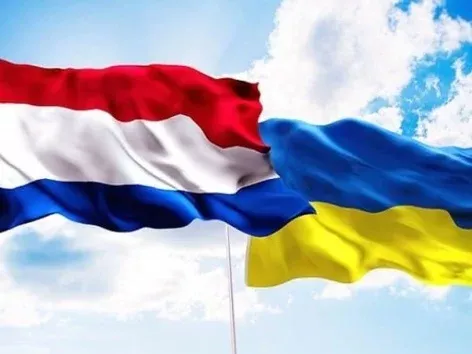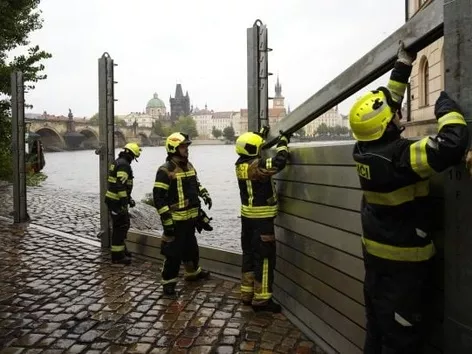The Dutch government introduces the strictest migration rules in history: what is known

The Dutch authorities have unveiled an updated program that envisages significant changes in the field of migration, aiming to significantly reduce the inflow of migrants and strengthen control over asylum. Find out more about what awaits refugees in the country
The Dutch government has presented a large-scale program aimed at significantly tightening migration rules. This was announced by Prime Minister Dick Schof.
The Netherlands introduces new strict migration restrictions: details
After the far-right Freedom Party of Geert Wilders came to power, the Netherlands announced one of the toughest anti-immigration programs in the European Union.
The new policy envisages significant changes in the field of migration, including enhanced border checks.
The measures proposed by the government include reducing opportunities for family reunification, prohibiting, in particular, adult children from joining their parents. Particular attention will be paid to speeding up the deportation of those who are not eligible for asylum and to changing housing legislation to avoid giving asylum seekers priority access to social housing.
The Minister of Migration and Asylum, Marjolein Faber of the Freedom Party, said that her goal is to introduce “the strictest asylum policy in the history of the Netherlands.”
She explained that the new emergency law to be adopted would allow the government to take decisive action without the need to obtain parliamentary approval.
As you know, the far-right Freedom Party won almost a quarter of the seats in parliament in the November elections last year, which was the result of growing support among voters concerned about migration issues. The appointment of Faber as Minister of Migration was an important political step in the implementation of this program.
Prime Minister Dick Schof, defending the new tough measures, said that the Netherlands could no longer tolerate a “large flow of migrants” and planned to ask the European Commission for a temporary waiver from the EU's common migration policy.
According to him, reducing the number of asylum seekers is a necessary step to ensure the population's access to housing, healthcare and education.
"Even if we start acting today, everything will not be solved tomorrow. We have to make decisions for our children and grandchildren," the Prime Minister said.
The main provisions of the new program:
- Suspension of asylum applications. The government will temporarily stop making decisions on new applications.
- Abolition of the law on the even distribution of migrants, which will avoid pressure on certain regions.
- Toughening the conditions of admission. Re-applications for asylum will be considered more strictly, with stricter criteria.
- Restrictions on family reunification. Adult children will no longer be able to reunite with their parents.
- Stricter requirements for naturalization. The language level for citizenship is raised to B1, and the waiting period is increased from 5 to 10 years.
Visit Ukraine on social media: Telegram | YouTube | Instagram | Facebook | Twitter | TikTok
Changes for Ukrainian refugees in the Netherlands
The program also provides for new requirements for displaced persons from Ukraine:
- Financial independence. From the summer of 2024, the accommodation allowance will be terminated if the person receives income. Displaced persons will be required to contribute financially to their living expenses.
- Strict control. The government will strictly monitor compliance with the terms of the Temporary Protection Directive concerning displaced persons from Ukraine.
Housing crisis and infrastructure plans
The government pays considerable attention to the housing crisis. Currently, about 40,000 asylum seekers arrive in the country every year, which puts additional pressure on the housing market. The Cabinet of Ministers plans to build or vacate 100,000 apartments annually over the next five years, allocating 5 billion euros for this purpose. Another 2.5 billion euros will be spent on infrastructure development to improve access to new housing projects.
Education and Dutchization
The program also provides for a number of changes in education. The Dutch government plans to limit the use of English in universities, except for a few faculties, and reduce the number of foreign students. However, some large international companies operating in the Netherlands have already expressed concern about this step.
Defense and other initiatives
In the defense sector, the Netherlands will continue to spend 2% of its GDP and support Ukraine “financially, politically, and morally”.
In addition, the government plans to toughen penalties for terrorism-related crimes and is considering holding parents accountable for crimes committed by their children.
The program also includes an end to unwanted foreign aid to companies, foundations and religious organizations, as well as an increase in the maximum life sentence to more than 15 years.
Resonance and criticism
The government's new proposals have provoked a lively reaction in society. Opposition parties have already condemned the emergency law, which allows the government to make decisions without parliament, calling it “anti-democratic.”
The Dutch Council for Refugees has also expressed concern about the possible consequences for the rights of asylum seekers, saying that the problems with asylum are the result of “political choices” and not force majeure.
The program also emphasizes the link between domestic migration issues and the international situation. The government emphasizes that russia's aggressive war against Ukraine threatens European security and that the Netherlands must be prepared for hybrid threats. Attention is also drawn to China's growing role in changing the international order and the deteriorating situation in the Middle East.
It is noted that these global processes affect the daily lives of the Dutch through rising prices and cyber threats, which makes the issue of migration closely related to the international political situation.
If you are interested in the issue of migration and face any obstacles or difficulties, we recommend that you entrust this matter to professionals - Visit Ukraine lawyers will help you with the collection of documents and provide advice using an individual approach. You can get acquainted with the consultation packages here.
Want to know more? Read the latest news and useful materials about Ukraine and the world in the News section.
Ihor Usyk is the Head of Legal Department at Visit Ukraine
On the Visit Ukraine portal, you can get legal advice on migration law. Our lawyers will answer all your questions and, if necessary, help you collect, submit and receive the documents you need. You can order a specialist consultation or full legal support by following this link.
Our recommendation for a safe and comfortable trip:
Visit Ukraine Insurance - insurance for a safe stay abroad without unnecessary expenses;
Green Card - compulsory car insurance for traveling abroad;
Visit Ukraine Tickets - book tickets for buses, trains, and airplanes to/from Ukraine and between cities around the world;
Private Lawyer service - professional legal support on visa and migration issues;
Visit Ukraine Merch - buy patriotic clothing and accessories with worldwide delivery.
© 2018-2024, Visit Ukraine. Use, copying or reprinting of materials on this site is permitted only with a link (hyperlink for online publications) to Visit Ukraine.
All rights reserved.
Recommended articles
2 min
Finance
The Norwegian Refugee Council (NRC) in Ukraine has opened a call for applications for financial assistance for victims. Find out how to apply and receive support
16 Sep. 2024
More details2 min
Work
August 2024 showed a record number of vacancies in the Ukrainian labor market and an increase in salaries. Find out which categories of professions are in the greatest demand, where there is the largest increase in vacancies, and what salaries employers offer
15 Sep. 2024
More details2 min
Insurance
Insurance for travelling to Spain: who needs it, how to apply and where to find it?
Taking out travel insurance for a trip to Spain is an important step that ensures safety during your stay abroad. Whether you're going on holiday or planning to work or live in Spain for a long time, choosing the right policy will help you avoid unexpected expenses and ensure access to medical care in any situation. Find out when and who needs it
26 Mar. 2025
More details2 min
Popular
Last week, Europe was hit by the massive cyclone Boris. Floods and snowstorms affected Austria, Poland, the Czech Republic, Romania and a number of other countries. Find out what the situation in Europe is now and how Ukraine has joined the EU's assistance
16 Sep. 2024
More details

